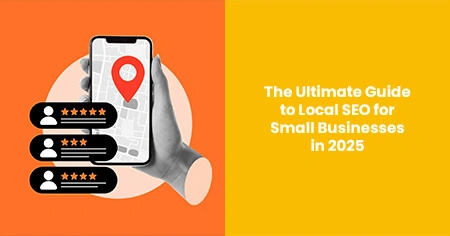That’s where custom-built mobile and web solutions come in. Unlike generic platforms, these are designed to work the way your business does. They make things run smoother, improve customer experience, and help you work more efficiently. As a result, when your operations are tight, the profits naturally follow.
Having said that, in this article, we’ll explore in detail how investing in custom digital solutions can give your business a real edge and significantly boost your return on investment (ROI).
Let’s dive in!
1. Align Your Digital Strategy with Business Goals
Maximizing ROI starts with having a clear strategy. Your website or app isn’t just there to look good. Actually, it needs to help your business grow.
Think of some questions in your mind:
- What are you trying to achieve with your business?
- How can a digital solution make that happen?
- Who are you trying to reac
Didn’t understand the essence? Well, say you want to keep customers coming back. Adding a loyalty program to your app could help with that. Or maybe you’re trying to improve customer service. In that case, setting up a live chat on your website might be the answer.
In short, the goal is to make sure your digital tools are working toward your business goals, not just taking up space online. A lot of businesses miss the mark here. They build fancy apps and websites without thinking about the bigger picture. That’s how money gets wasted.
A custom solution changes that. It ensures that every feature, button, and customer interaction is helping you move toward something real, that is, better customer retention, more sales, or whatever your goal may be.
However, to make sure your app or website aligns with your business objectives, working with an experienced developer is very important. Some reputable developers, like DreamWalk, specialize in creating high-performing apps and digital platforms that are designed to meet business goals.
Known for their user-centric design and transparent approach, they have a track record of building apps that engage users and also drive measurable business results. Their local, in-house team ensures that every project is crafted with precision and care. That makes it easier for you to deliver a seamless experience to your customers.
This way, aligning your business strategy with the actual goals can assist you in earning more ROI.
2. Improve Efficiency Through Automation
Time is money. When you’re spending hours on manual tasks, you’re losing valuable time that could go toward business growth. In that case, automating those daily processes with custom mobile and web solutions can help you work smarter and minimize errors.
Have a look at how automation can help:
- It processes orders automatically. That, in turn, reduces human error.
- It helps sync customer data across platforms to avoid duplication.
- It sets up automated responses to customer inquiries.
- It manages inventory and shipping without manual tracking.
For example, an online store with a custom order management system can track inventory, send shipping updates, and notify customers about delivery status. The best part is that it all happens without human involvement.
Not only does this make things easier for your customers, but it also helps cut down on costs. Automation lets you expand without piling on more work for your team. When they’re not bogged down by routine tasks, they can put more energy into big-picture thinking and customer care.
3. Personalize the User Experience
We all appreciate a personal touch. If someone opens an app or website and it feels too broad or impersonal, they’re not going to stick around for long.
Therefore, think about it:
- What products or services are your customers actually interested in?
- How can you make their experience more personal and seamless?
- What kind of updates would keep them engaged without feeling overwhelmed?
Let’s say you’ve got a fitness app. If it recommends workouts based on the user’s fitness level and goals, it becomes more than just a workout tool. Instead, it starts feeling like a personal trainer. That’s helpful and makes the user feel understood.
Or imagine you run an online store. If you suggest products based on what the customer has already bought, it makes shopping easier. More importantly, it shows you’re paying attention to their preferences.
The truth is, personalization isn’t some complicated formula; it’s about getting the small things right. A push message or a quick notification when a favorite product is back in stock or a discount on something they’ve viewed before goes a long way.
It makes people feel like the business values them as individuals, not just as customers. And when people feel valued, they stick around. This, in the long term, will lead to better returns on investment.
4. Boost Performance and Speed
Waiting for a slow website or app is frustrating. If it doesn’t load quickly, people are likely to lose patience and look elsewhere. Speed matters because it shapes the whole user experience — a fast, smooth platform keeps people engaged and coming back.
Custom solutions give you more control over performance. Developers can clean up the code, simplify how pages load, and add smart caching so your platform stays fast even when traffic spikes.
Why does this matter?
- People stick around longer when things load quickly.
- Faster response times mean more completed purchases and fewer abandoned carts.
- Search engine tends to rank faster websites that load faster higher, so better speed could mean more visibility.
Think about an online store. If the product pages load quickly and the checkout is smooth, customers are more likely to follow through with a purchase. Additionally, they may even come back next time.
Therefore, speed isn’t just about convenience; it directly impacts your bottom line.
5. Strengthen Security and Data Protection
Keeping customer data safe is critical. A security breach does more than hurt your bottom line; it makes customers question whether they can trust you. On the other hand, a secure platform reassures customers and protects your business from long-term damage.
Custom solutions let you build security features that fit your business needs. So, you can add:
- Encryption to keep sensitive data safe.
- Multi-factor authentication to protect user accounts.
- Regular security updates to stay ahead of new threats.
- Firewalls and monitoring tools to spot and stop intrusions.
Take a financial services app, for example. When users know their data (login information) is protected, they feel more at ease using the platform. That sense of trust encourages them to spread the word. Turns out, the business will get more ROI.
6. Make Data-Driven Decisions
Having data is one thing, but knowing how to use it is another. A tailored solution related to custom apps gives you the insights you need to make smart decisions and stay competitive.
With the right tools, you can track things like:
- How do people interact with your platform?
- Which products are selling and when?
- What are customers saying about their experience?
- Where do users tend to drop off before completing a purchase?
Say you notice that people are leaving at the payment stage. That indicates a signal to simplify checkout or offer more payment options.
Data gives you these sorts of insights you need to improve performance and boost profits. As a result, a custom dashboard helps you see trends clearly so you can adjust your strategy without the guesswork.
7. Scale as Your Business Grows
Many off-the-shelf solutions work well for small businesses but fail when demand increases. Custom solutions are designed with scalability in mind, allowing you to grow without running into technical limitations.
Scalability ensures that:
- Your platform can handle increased traffic without slowing down.
- New features can be added without rebuilding the entire system.
- Your solution remains secure and functional as your business expands.
For example, a growing e-commerce store may need to add more products and payment options. A scalable platform allows you to make these updates without downtime or performance issues.
Finally, having an ultimate solution that grows with your business ensures long-term success and a higher return on investment.
8. Create a Competitive Advantage
Most businesses are using the same generic platforms, and it certainly shows. A custom app or website lets you break away from that and give customers something better.
Here’s how a custom solution helps you stand out:
- You can add features that others don’t have.
- It connects smoothly with the tools you already use.
- A better user experience means happier customers — and more of them.
Think about a ride-sharing app. If it offers real-time driver tracking, flexible payment options, and smart route suggestions, it’s going to pull customers away from the competition. When your platform works better than the others, people notice, and they stick with you.
9. Lower Long-Term Costs
It’s true that custom solutions can be pricey upfront, but they tend to pay for themselves over time. You won’t have to deal with licensing fees or unnecessary updates.
Think about using a chatbot for customer service. It’s less time spent on staffing, which means lower costs overall. And when your platform is built for your business, it just works better — fewer breakdowns, fewer repairs, and less money wasted on fixes.
The crux is not about cutting corners. Instead, it’s about building something that runs smoothly so you’re not constantly paying to keep it working.
To Sum It All Up!
A custom platform isn’t about having the best tech out there. It’s about building something that fits how your business works. When your system matches your needs, handling more customers and adjusting to changes becomes easier.
It is well evident that you don’t want to be stuck with a platform that can’t grow with you. That’s why a custom digital solution matters. It might feel like a big step, but it saves you trouble later — no more working around someone else’s limits.








